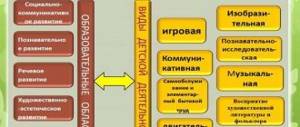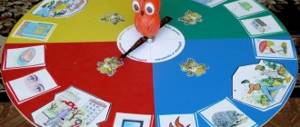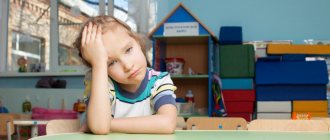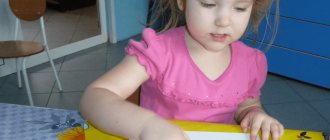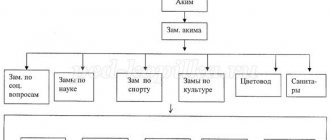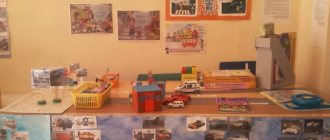Self-education plan for remedial education.
Individual work plan for self-education
Topic: “The use of non-standard forms of work in the classroom that contribute to the effectiveness of teaching children with disabilities”
Yakhontova Svetlana Albertovna
special education teacher,
MCOU "Tsvetnopolskaya Secondary School".
Target:
- ensuring a higher level of professional competence;
- improving the quality of training sessions based on new technologies.
Tasks:
- study the literature on the problem and the extent of its implementation in practice;
- carry out the design of the activity and its experimental testing;
- carry out reflection and experience gained.
presentation form
1
Determining the degree of development of the topic in the literature and practice
2013-2014
Compilation of the degree of knowledge of pedagogical literature, annotation of sources
2
Activity design: selection of methods, forms, methods and conditions of activity
2014-2015
Interview with the head of the Ministry of Defense,
Message to MO
Message to MS
3
Experimental testing, use of correctional capabilities of various types of activities
2015
Interview with the head of the Ministry of Defense, deputy director for water management
Conducting lessons
Carrying out extracurricular activities
4
Reflection: development of methodological recommendations, presentation of results
2015-2016
Writing and defending creative work and teaching materials
Expected results:
- Studying the literature on the topic “The use of non-standard forms of work in the classroom that contribute to the effectiveness of teaching children with disabilities.”
- Testing forms of pedagogical activity on the topic.
- Generalization of experience
The topic is
“ The use of non-standard forms of work in the classroom that contribute to the effectiveness of teaching children with disabilities .”
2013-2014 academic year
is devoted to clarifying the degree of development of the topic in literature and practice.
The final result: compilation of a list of references and annotation of sources.
Relevance.
The peculiarity of non-standard lessons lies in the desire of teachers to diversify the life of a student. Conducting such lessons also testifies to teachers’ attempts to go beyond the template in building the methodological structure of classes. But it is impossible to build the entire learning process from such lessons. Therefore, it is important to find a place and time for this.
Goal of the work
: study of literature that is devoted to the practical solution of didactic problems at school.
Tasks:
- Study the literature on this topic;
- Compile a list of literature that describes techniques and methods for activating the cognitive activity of students with disabilities.
Methods:
- Literature analysis;
- Analysis of creative works;
- Working with card indexes, magazines, Internet materials.
The topic is
“ The use of non-standard forms of work in the classroom that contribute to the effectiveness of teaching children with disabilities .”
2014-2015 academic year
Activity design: selection of methods, forms, methods and conditions of activity.
Relevance.
Search for methods and techniques of pedagogical activity that contribute to the development of cognitive processes of schoolchildren with intellectual disabilities, which increase the correctional orientation of the process of teaching biology and geography in the senior classes of a correctional school of the VIII type.
Goal of the work
: determining ways of conscious perception of the material offered in the lesson, enhancing the cognitive activity of students.
Task:
- identify the state and characteristics of the knowledge of schoolchildren with disabilities about cause-effect dependencies between the phenomena of the surrounding world;
- explore the features of the formation of biological, geographical and environmental concepts;
- highlight the correctional capabilities of active forms of learning: instructional design, supporting notes, ICT.
Methods:
- literature analysis;
- monitoring the activities of students in the process of working on reference notes, while performing project activities;
- analysis of supporting notes, creative works, and oral responses of students;
The topic is
“ The use of non-standard forms of work in the classroom that contribute to the effectiveness of teaching children with disabilities .”
2015 academic year
Experimental testing, use of correctional capabilities of various types of activities.
Relevance.
The use in biology and geography lessons of a variety of methods and techniques of pedagogical activity that contribute to the development of cognitive processes of schoolchildren with intellectual disabilities, which increase the correctional orientation of the process of teaching biology and geography in the senior classes of a correctional school of the VIII type.
Target
: selection and testing of various forms of conducting lessons that contribute to the activation of students’ cognitive activity.
Tasks:
- take into account the state and characteristics of the knowledge of schoolchildren with disabilities about cause-and-effect dependencies between phenomena of the surrounding world when drawing up assignments;
- use a variety of lesson forms: travel, KVN, business game, reportage.
- use ICT when conducting lessons.
Methods:
- literature analysis;
- observation of students’ activities while working in class;
- analysis of used supporting notes, creative works, assignments and exercises;
- generalization of own work experience.
Self-education plan for a teacher-defectologist, material on the topic
Municipal budgetary educational institution
"Secondary school in the village of Pionersky"
Individual self-education plan of teacher-defectologist D.K. Krasnoperova
for the 2015-2018 academic year
topic: “Development of cognitive processes in children with disabilities in the conditions of the Federal State Educational Standard.”
2015
Explanatory note.
Goal: Providing timely specialized assistance to students with disabilities in mastering the mandatory minimum content of education in an educational institution.
Tasks:
1. Identify unfavorable developmental options and determine the child’s learning difficulties.
2.Draw up individual comprehensive child development programs in the conditions of interaction between PHC(k) specialists.
3. Identify children with mental retardation, special needs, special needs, and disabilities who need special interaction from specialists.
4. Identify children who are not eligible for education in the KRO system.
5. Dynamic study of the level of mental development of children and the results of correctional interventions.
6. Monitor the compliance of the chosen program, teaching methods and techniques with the child’s real achievements and level of development.
7. Conduct individual and group correctional classes to ensure the assimilation of program material and the transfer of skills and abilities formed in the classroom to the educational activities of students.
8.Consult teachers and parents.
9. Intensify the participation of children with disabilities in various events, various forms and levels of organization
10.Improve knowledge in the field of special and correctional pedagogy and psychology.
11.Work under the conditions of the introduction of the Federal State Educational Standard for children with disabilities.
Sources of self-education: Methodological literature, Internet resources, seminars, conferences, advanced training courses, regional methodological associations, master classes.
Forms of self-education:
- Individual – through an individual plan,
- Group - through participation in the activities of the regional methodological association of speech therapists, teachers, network interaction with teachers via the Internet.
Expected results:
- increasing the theoretical, scientific and practical level, professional skills and competence of a teacher-defectologist in the context of the introduction of the Federal State Educational Standard for children with disabilities, teachers, parents;
- implementation of a technological approach in providing assistance and support to children with disabilities (disabilities, special educational institutions, educational institutions, children with special needs, etc.).
- development of booklets and memos aimed at developing the cognitive processes of students.
- development and conduct of open lessons, master classes, generalization of experience on the topic under study.
- reports, speeches at meetings of the Moscow Region, participation in competitions and conferences with self-generalization of experience;
- promoting a personal portfolio website on the Internet, adjusting its main sections, posting author’s teaching materials on it.
- intensifying children's participation in competitions, increasing the level of educational motivation.
Directions of self-education:
| |
| Conducting a defectological examination of students with disabilities (dynamic, repeated), primary students (new arrivals, underachieving 2nd graders). | Annually: September-May, throughout the year, on request |
| Conducting a survey of adaptation of students with disabilities in grades 1 and 5. Use of previously unused diagnostic materials. | Annually, upon request. |
| Study and analysis, dynamic examination of students who have passed PMP(k), TMPK | Upon request, plan |
| Study of the regulatory framework in the field of education, education of children with disabilities | regularly |
| |
| Conducting correctional and developmental classes, involving students with disabilities in events of various levels and forms of organization | September-May |
| Consulting parents and teachers on developmental problems of students with disabilities | Throughout the year, upon request |
| |
| Familiarization with the regulatory framework and informing parents of children with disabilities, assistance in their provision and protection, in matters of education and protection. | regularly |
| Prevention of developmental disorders in children with disabilities | regularly. |
| Carrying out activities aimed at improving the professional competence of teachers and expanding their knowledge (speeches at educational institutions, individual consultations, participation in webinars). | On request, regularly |
| IV. Organizational and methodological activities | |
| Participation in the work of the district educational organization of speech therapists and speech pathologists, school educational organizations. Giving a report on the topic of self-education. | According to the Ministry of Defense plan, at the request of the Ministry of Defense |
| Speech at parent meetings on problems and developmental disabilities | Regularly, upon request |
| Participation in conferences, seminars, work in creative groups on the implementation of the Federal State Educational Standard for HIA in non-profit organizations. | Regularly, upon request |
| Posting information about the activities of a speech pathologist in the media and on the school website | regularly |
| Development of reminders aimed at the development and formation of cognitive processes, positive motivation for learning | regularly |
| Improve students' knowledge of modern educational content. | regularly |
| Get acquainted with new technologies, forms, methods and techniques of teaching. | regularly |
| Organize work with children with disabilities in creative work competitions, distance quizzes and competitions, and take part in conferences. | regularly |
| Study the work experience of the best teachers in the district and Russia via the Internet. | regularly |
| Create your own database of the best scenarios for lessons, activities, interesting techniques, and technologies. | regularly |
| Preparation of printed articles (Internet) on the topic of self-education. | Until September 2020 |
